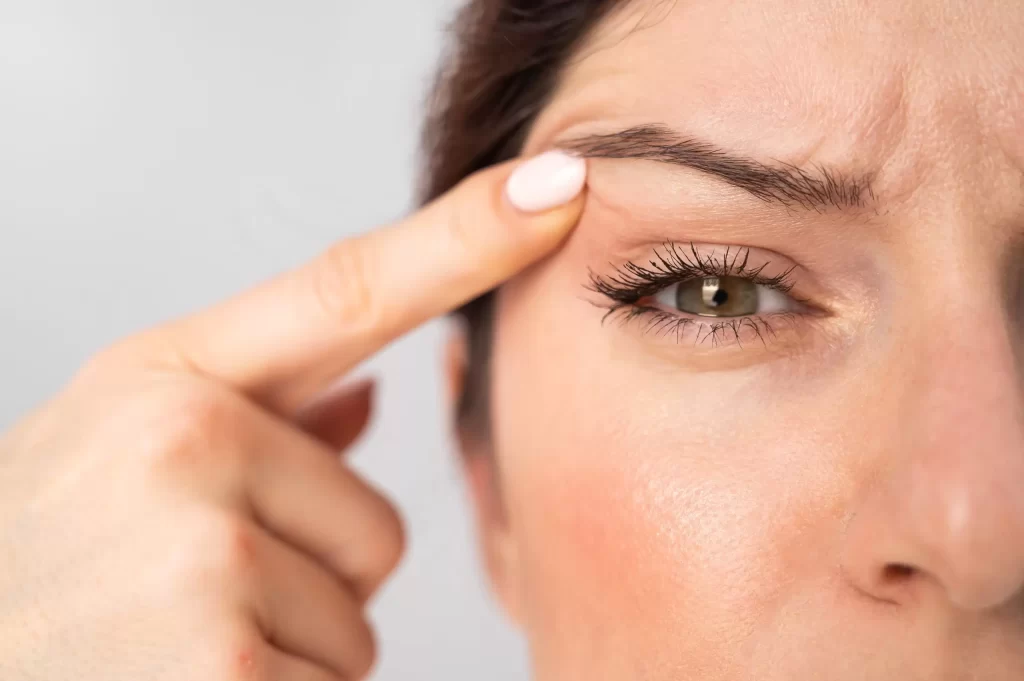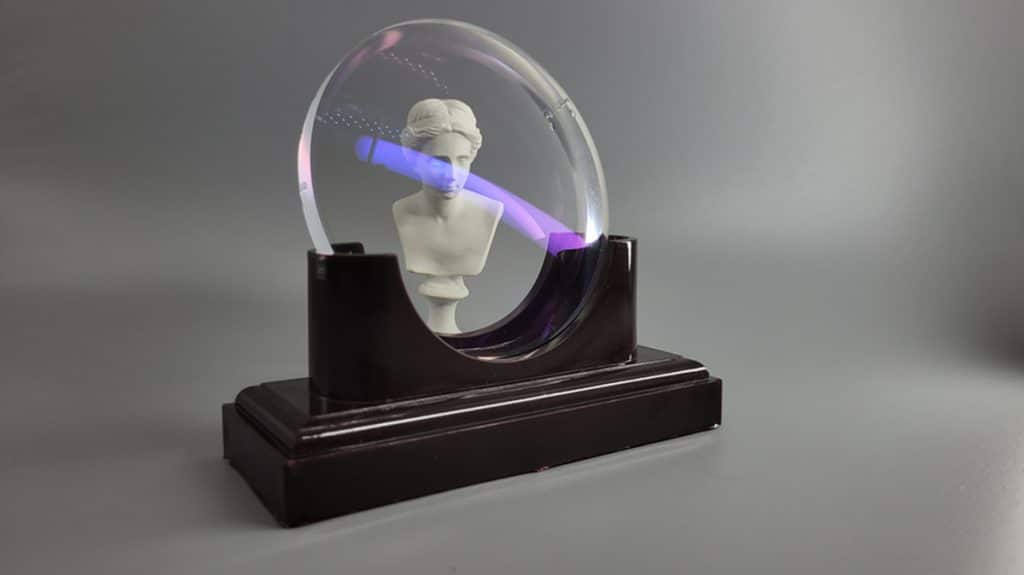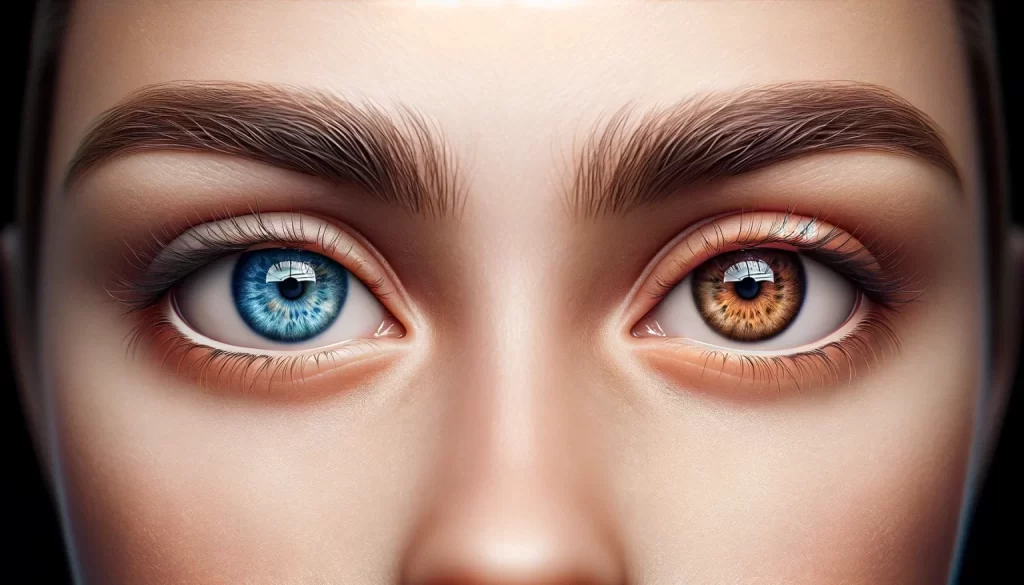What is Eye Twitching?

Eye twitching is a common condition experienced by many people at some point in their lives. Medically known as “myokymia,” this condition is usually harmless and resolves on its own. However, sometimes eye twitching can be a sign of a more serious underlying health issue. In this article, we will examine the causes, symptoms, treatment methods, and prevention of eye twitching in detail.
Causes of Eye Twitching
Eye twitching usually occurs due to involuntary contractions of the small muscles in the eyelid. These contractions can occur for various reasons:
- Stress and Fatigue: Stress and fatigue are among the most common causes of eye twitching. The intense work pace, personal problems, and constant state of worry that daily life brings can cause the body to become stressed. When under stress, it becomes difficult for the muscles to relax due to the body’s constant “fight or flight” state. Long-term stress can especially lead to involuntary muscle contractions. Similarly, fatigue can cause the eye muscles to be unable to rest and overwork. Long working hours, insufficient sleep, and excessive physical activity can contribute to eye twitching.
- Caffeine and Alcohol Consumption: Caffeine and alcohol have stimulant effects on the central nervous system. Excessive caffeine consumption can overstimulate the nervous system and trigger muscle contractions. Overconsumption of caffeine-containing foods such as coffee, tea, energy drinks, and chocolate can increase eye twitching. Similarly, alcohol consumption can disrupt the balance of the nervous system and cause involuntary muscle contractions. Regular and excessive alcohol consumption can especially increase the frequency of eye twitching.
- Eye Fatigue: One of the biggest problems brought about by modern life is the dependence on digital screens. Staring at a computer screen for long periods, reading books, or using a phone can excessively tire the eyes. When the eye muscles constantly have to focus, this can lead to eye twitching. Eye fatigue can also cause dryness and irritation in the eyes, which can trigger twitching.
- Nutritional Deficiencies: A lack of certain minerals necessary for the body to function properly can cause eye twitching. Minerals such as magnesium and potassium play an important role in the proper functioning of muscle functions. The deficiency of these minerals can disrupt the contraction and relaxation mechanism of muscles, leading to eye twitching. Additionally, B vitamin deficiencies can have adverse effects on the nervous system and trigger eye twitching.
- Allergies: Eye allergies can cause symptoms such as itching, watering, and twitching in the eyes. Exposure to allergens such as pollen, dust, and animal fur can affect the eye muscles. Allergic reactions can cause irritation and contractions in the eyes, triggering twitching. Seasonal allergies can especially increase complaints of eye twitching.
- Dry Eyes: Dry eyes are another common cause of eye twitching. Dryness caused by the loss of moisture on the eye surface leads to irritation and discomfort in the eyes. This can cause involuntary contractions of the eye muscles. Spending long periods in front of a screen, staying in air-conditioned environments, or not drinking enough water can increase dryness in the eyes, leading to twitching.
- Medication Use: Eye twitching can be seen as a side effect of some medications. Medications that affect the nervous system can trigger muscle contractions. Antidepressants, antipsychotics, and some antihistamines are among the medications that can cause eye twitching. If eye twitching occurs as a side effect during medication use, it is important to consult a doctor.
Symptoms of Eye Twitching
Eye twitching is usually felt as a slight tremor or contraction in the eyelid. However, these symptoms can appear in different forms and severities:
- Mild Tremor: A mild tremor felt in the eyelid is the most common symptom of eye twitching. It is usually not disturbing and disappears within a few seconds. These types of twitches usually occur due to temporary causes such as stress, fatigue, or caffeine consumption.
- Continuous and Severe Contractions: In some cases, eye twitching can manifest as continuous and more severe contractions. These contractions can cause the eyelids to close completely and make daily activities difficult. Continuous and severe contractions usually indicate a more serious problem and may require medical intervention.
- Eye Pain and Discomfort: Sometimes eye twitching can occur along with eye pain and discomfort. This condition can be associated with eye fatigue or dry eyes. Eye pain can be a sign of an underlying infection or another eye disease.
- Visual Impairments: In rare cases, eye twitching can be seen along with visual impairments. This can manifest as blurred vision, double vision, or focusing problems. Such symptoms require urgent medical evaluation.
- Swelling and Redness in the Eye: Eye twitching can sometimes be accompanied by swelling and redness in the eye. This condition can be caused by eye infections, allergies, or irritations in the eye. Swelling and redness in the eye may require medical evaluation to determine the cause of the twitching.
- Persistent Itching in the Eye: Persistent itching in the eye can be a symptom of eye allergies or dryness. Itching can be a trigger for eye twitching and can make this condition even more bothersome.
- Light Sensitivity: Eye twitching can sometimes be seen along with sensitivity to light. In this case, bright lights can increase the discomfort and twitching feeling in the eyes. Light sensitivity can also be a symptom of other health issues like migraines.
Treatment of Eye Twitching
Eye twitching is generally a self-resolving condition and does not require treatment. However, some steps can be taken to reduce or prevent twitching:
- Stress Management: Reducing stress is one of the most effective ways to prevent eye twitching. Stress is known to trigger involuntary muscle contractions. Therefore, it is important to learn and practice stress management techniques. Activities such as meditation, yoga, deep breathing exercises, and daily walks can be effective in reducing stress. It can also be beneficial to identify stress sources and seek professional help to manage them.
- Paying Attention to Sleep Routine: Getting enough and quality sleep helps the body rest and muscles relax. To establish a sleep routine, it is important to go to bed and wake up at the same time every day and make the sleep environment comfortable and dark. Sleeping at least 7-8 hours a day allows the body and eye muscles to rest. Avoiding electronic devices before sleep and engaging in relaxing activities can also help improve sleep quality.
- Reducing Caffeine and Alcohol Consumption: Limiting the consumption of caffeine and alcohol can calm the nervous system and reduce eye twitching. Caffeine and alcohol can stimulate the nervous system and increase muscle contractions. Therefore, it is important to limit the consumption of coffee, tea, energy drinks, and alcohol. It can be beneficial to avoid these substances, especially during periods of twitching attacks.
- Eye Resting Exercises: Regularly resting the eyes while using a computer or phone can prevent eye muscle fatigue. Looking at a distant point for 20 seconds every 20 minutes can relax the eye muscles. It is also beneficial to close the eyes and rest for a few minutes. These exercises can reduce eye fatigue and, therefore, eye twitching.
- Balanced Diet: A diet rich in minerals and vitamins supports eye health. It is important to consume foods containing magnesium and potassium. Foods such as spinach, almonds, avocado, bananas, and whole grains provide the necessary minerals for eye health. Additionally, drinking enough water can prevent eye dryness and reduce twitching.
- Addressing Eye Dryness: Eye dryness is a common cause of eye twitching. Using eye drops to keep the eyes moist can reduce twitching. It can also be beneficial to use humidifiers to prevent eye dryness while staying in air-conditioned environments. Regularly washing the eyes with water can also help prevent dryness.
- Paying Attention to Medication Use: Eye twitching can be seen as a side effect of some medications. If twitching occurs due to medication use, it is important to consult a doctor to get information about alternative medications. Being in communication with the doctor about the side effects of medications can help reduce eye twitching.
- Eye Exercises and Massage: Some simple exercises and massage techniques can be applied to relax the eye muscles. Gently massaging the eyelids can increase blood circulation and relax the muscles. Additionally, moving the eyes left and right, up and down can help strengthen the eye muscles.
Preventing Eye Twitching
To prevent eye twitching, some lifestyle changes may be necessary. Stress management, regular sleep, balanced diet, and eye resting habits can reduce the risk of twitching. Additionally, it is important to have regular eye exams to maintain eye health.
Regular Eye Exams: Regular visits to an eye doctor are important to maintain eye health. Eye exams can help in the early diagnosis of potential eye diseases. It is also beneficial to stay in communication with the doctor to get information about factors that may affect eye health and to take necessary precautions.
Paying Attention to Computer and Phone Use: Long periods of computer or phone use can cause eye fatigue and twitching. Therefore, it is important to take regular breaks during working hours and adjust screen brightness. Additionally, frequently blinking while using the computer helps keep the eyes moist.
- 20-20-20 Rule: Looking at a distance of 20 feet (about 6 meters) for 20 seconds every 20 minutes helps the eyes rest.
Adopting a Healthy Lifestyle: Overall health directly affects eye health. Regular exercise, healthy eating, and drinking enough water protect general health and eye health. Additionally, not smoking and limiting alcohol consumption are beneficial for eye health.
- Exercise: Regular physical activity increases blood circulation and helps keep the eyes healthy.
- Balanced Diet: Consuming foods that support eye health contributes to the health of the eyes. Foods containing Omega-3 fatty acids, Vitamin C, Vitamin E, zinc, and lutein are beneficial for eye health.
Using Protective Glasses: Using protective glasses when necessary is important to protect the eyes. Especially using blue light-filtered glasses while using a computer can reduce eye fatigue. Additionally, using UV-protected sunglasses on sunny days protects the eyes from the harmful effects of the sun.
- Blue Light Filtered Glasses: Filters out blue light emitted from digital screens, reducing eye fatigue.
- UV Protected Glasses: Blocks harmful effects of sunlight, protecting eye health.
Paying Attention to Eye Hygiene: Paying attention to hygiene rules is important to keep the eyes clean and healthy. Using hygienic products while doing eye makeup and cleaning makeup every day protects eye health.
- Makeup Products: Using quality and hygienic makeup products helps prevent eye infections.
- Makeup Cleaning: Cleaning eye makeup every day helps keep the eyes healthy.
Eye twitching is generally a harmless and temporary condition. However, it is important to consult a specialist for twitches that affect quality of life or indicate an underlying health issue. Measures such as stress management, adequate sleep, and healthy eating can reduce the risk of eye twitching. Remember, your eyes are the mirror of your health; taking good care of them will positively affect your overall health.







